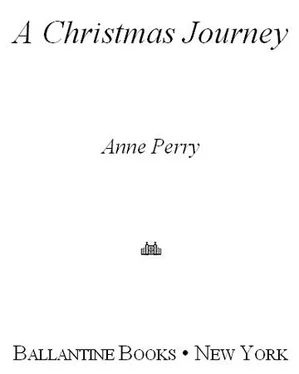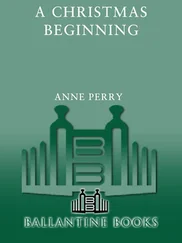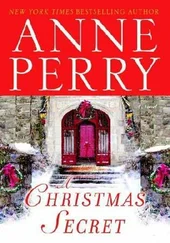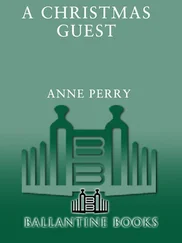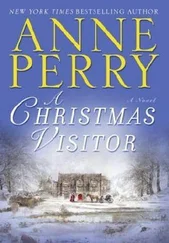They discussed it no more. The fire was fading, and sleep beckoned like comforting arms. They were both happy to go upstairs and sink into oblivion until the morning should require them to face the elements and attempt to reach Ballachulish.

It was a hard journey, even though not long as the crow or the gull were to fly. The sharp west wind obliged the little boat to tack back and forth down the coast through choppy seas, and both Isobel and Vespasia were relieved to put ashore at last in the tiny town of Ballachulish and feel the earth firm beneath their feet. They crossed the road from the harbor wall, heads down against the sleet, wind gusting, tearing skirts, and made their way to the inn. They asked the landlord about Mrs. Naylor, and his response brought them close to despair.
“Och, I’m that sorry to tell ye, but Mistress Naylor left Ballachulish nigh on a year ago!” he told them with chagrin.
“Left?” Isobel could scarcely believe it. “But she can’t! Her household in Inverness told us she was here!”
“Aye, and so she was,” he agreed, nodding. “But she left a year ago this Christmas. Grand lady, she was. Never knew any lady of such spirit, for all that she was as English as you are.”
Isobel swallowed. “Where did she go? Do you know?”
“Aye, I do. Up through the Glen and over the moor to the Orchy. You’ll no be going that way, though, till May or so. Even then it’s a wild journey. Horses you’ll need. The High Road passes right around there, and then south.”
Isobel looked at Vespasia, the first signs of defeat in her eyes.
Vespasia felt a rush of pity, first for Isobel, knowing what awaited her in London if she failed. They would not care what the reason was, or if they could or would have done differently themselves. They were looking for excuses, and any would serve. Then she felt for Mrs. Naylor. However mad she was, whatever reason had brought her here and then driven her to go up into Glencoe and beyond, she still deserved to be told about her daughter’s death face-to-face, not in a letter half a year late.
“I accept that it may be difficult,” she said to the landlord. “Is it possible, with good horses and a guide?”
The man considered for several seconds. “Aye,” he said at last. “Ye’ll be used to riding, I take it?”
Vespasia looked at Isobel. She had no idea of the answer.
Isobel nodded. “Certainly. I’ve ridden in London often enough.”
“Ye’ll be needing a guide,” he warned.
“Naturally,” Vespasia agreed. “Would you arrange one for us, at whatever you consider a fair rate?”
Isobel blinked, but she made no demur.

So it was that the next morning they set out in the company of a grizzled man by the name of MacIan, with a strong Highland pony each to ride, and three more to follow with luggage, water, and food.
“Keep close!” MacIan warned, fixing them in turn with a skeptical eye. “I’ll no have time to be nursemaiding ye, so if ye’re in trouble, call out, don’t just sit there and hope I’ll be noticing, ’cause I won’t. I’ve my work to keep these ponies on the track, not to speak of finding it mysel’, if the weather turns.” He cocked his head to one side and looked up at the wild sky with clouds racing across it casting the hills in brilliant light one moment, then shrouded in purple, and then black the next. The water in the loch was white-ruffled. The wind was laden with salt and the sharp smell of weed. It was ice-cold on the skin, whipping the blood up.
Isobel looked at Vespasia. For once they understood each other perfectly. Pride kept them from turning back. “Of course,” they both agreed, and when MacIan was satisfied that they meant it, they set out of the village on the rough road through ever-steepening mountains toward the great Glen of the most treacherous massacre in the history of Scotland. In the winter of 1692 the Campbell guests had risen in the night and slain their MacDonald hosts—man, woman, and child—all in the cause of loyalty to the Hanoverian king from the south.
They rode in silence, because no conversation was possible. The wind tore their breath away, even if the labor of riding in single file along the track and the grandeur of the scenery had not robbed them of the wish to frame words for it.
At about one o’clock they stopped for something to eat, but primarily to rest the ponies. They were slightly sheltered by a buttress of rock, and Vespasia leaned against it and stared around her. On every side jagged mountains soared into the sky. Some were dark with heather on the lower slopes, the peaks like white teeth in the giant, upturned skull of some vast creature left behind from the beginning of time. The smell of the snow whetted the edge of the wind. It was a land of golden eagles and red deer, pools of peat-dark water, avalanches, and blizzards. There was a majesty, a terror, and a beauty that burned itself into the soul.
They remounted and set off again, climbing higher as the valley rose and the sides became steeper yet. Darkness fell early, and they stopped at a small hut, almost invisible in the dusk, amid the rock outcrops. It offered little hospitality beyond shelter from the elements, both for them and for the ponies. Vespasia was glad of that. She would not have left any creature out in the storm that was threatening, let alone beasts upon whom their lives might depend.
“Mrs. Naylor must be a raving madwoman,” Isobel said grimly, settling down to sleep in her clothes. The only concession to comfort was to take the pins out of her hair. “And I’m beginning to think we are, too.”
Vespasia was obliged to agree with her. The longer this journey continued, the more concerned she became as to what manner of woman Mrs. Naylor might be, and increasingly now, what had been the truth of the marriage between Gwendolen and Kilmuir, and exactly how he had died. Why had Gwendolen never spoken of her mother? What was the reason for what looked unmistakably like an estrangement?
Neither of them slept well. It was too cold and the wooden bunks were hard. It was a relief when daylight came and they could rise, eat a breakfast of oatmeal and salt, and drink hot tea, without milk, then continue on their way.
Outside was a staggering world. It had snowed during the night and the sky had cleared. The light was blinding. Sun glittered on ribbons of water cascading down the rock faces, hitting stones and leaping up, foaming white. An eagle drifted on the wind, a black speck against the blue.
They rode all day, resting only briefly for the ponies’ sake. Vespasia was so tired from the unaccustomed exercise that every bone and muscle in her body ached, and she knew Isobel must feel the same, but neither of them would admit it. It was not that they imagined they were deceiving anyone, least of all MacIan; it was simply a matter of self-mastery. One complaint or admission would lead to another, and then perhaps thoughts of surrender. Once suggested, it would become a possibility, and that must not be permitted. The temptation was too powerful. Instead they concentrated on a few yards at a time, from here to the next turn in the track, the next stretch ahead.
Then just before dusk, as the sun was setting in shards of fire almost due south, the valley opened out and the great width of Rannoch Moor lay in front of them, dark-patched with heather and peat bogs, pools shining bronze in the dying light. In the distance of the sky, turquoise drifted into palest blue before the advancing shades of the night.
No one spoke, but Vespasia wondered if perhaps Mrs. Naylor were not so mad after all. This was a different kind of sanity, undreamed of in London.
Читать дальше
